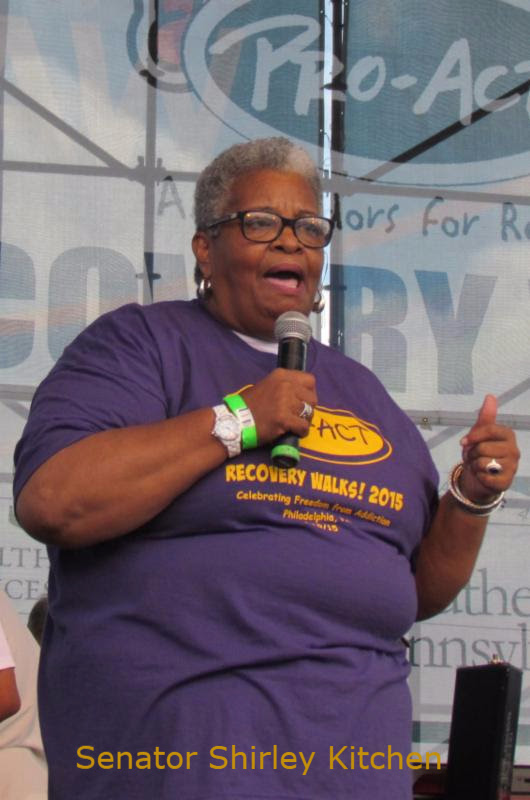
The most powerful tool is the truth. Mincing words or walking on eggshells are common mistakes 'affected others' make. Simple, direct, and clear communication gives us our best chance to be heard.
As an addictions counselor, I’m often asked by friends and family members of an active addict or alcoholic how they can best communicate with their loved one. My response is always, “Simply, directly, and powerfully.” In general, the more uncomfortable people are, the more words they use.
As anyone in recovery will tell you, any use of subtlety is counter-productive. You’re trying to tell us something we don’t want to hear and we’re brilliant in our ability to manipulate both language and people.
Here is a primer on how to communicate with us, coming from the perspective of the addict or alcoholic...
Have Conviction
Before you approach your loved one, make sure you have a reasonable amount of clarity as to what you need them to hear. If you’re unclear, we’ll prey upon your doubts and/or talk in circles until you’ve completely lost track of the point you were trying to make.
Addicts and alcoholics are the very best at manipulating conversations.
Make your points simply. Ask direct questions and seek direct answers. Everything else is us deceiving both you and ourselves.
Ask to Talk
Be clear that you want to express concerns or pass along information without judgment. If we feel a lecture is coming or that judgment is being cast we’re not really going to listen. Use 'I Statements.' If you’re describing what’s going on with you (caring, worry, concern) we’re more likely to take it in than if you’re pointing a finger and telling us what we need to change.
Do your best to remain calm. Walking on eggshells doesn’t work, but yelling is guaranteed to shut us down.
No Contingencies
Listen for us using words like, “probably”, “possibly”, or “maybe.” Be alarmed if you hear us say these things. What they really mean is “no.” Unless we say, “I will” you should expect that we have no intention of doing as you’ve asked.
Accountability is the key
Even if we’re agreeable, get down to the specifics of who, what, when, and where. Anything less than this isn’t a plan we’re at all likely to take responsibility for.
Active Listening Skills with an Addict/Alcoholic
Pay close attention to how we speak. Notice when we’re...
- Deflecting: Turning the topic back on you, changing the subject, using humor to lighten the mood.
- Rationalizing: Explaining why something that clearly is not okay is okay.
- Minimizing: Comparing to extreme examples, describing how it could be much worse, making our use relative to others.
- Avoiding: Pretending we didn’t hear you, explaining that you worry too much.
Pay attention to our body language
Notice where our eyes are:
- If we’re making eye contact - we’re engaged.
- If we’re staring at the floor - we’re ashamed.
- If we’re staring at the ceiling - we’re exasperated or pretending to be searching for an answer (stalling).
- If we’re staring into space, stop talking - We’ve checked out.
Notice our body language:
- A degree of high muscle tension indicates stress and likely fear.
- Hand wringing points toward anxiety and worry.
- If we’re turning away from you, we’re looking to leave the conversation and/or the building.
A relaxed posture suggests we’re open and receptive.
Trust your Gut
The best service I can provide to those active in addiction is to point out when I sense that they’re lying to themselves. This is partly the product of working from an objective perspective yet it remains largely an intuitive process.
The reason that alcoholics and addicts are so believable when we lie is that we’ve managed to convince ourselves that the lie is true. If something doesn’t add up, don’t wait until you can prove that it doesn’t. Check in with us by asking to help you understand.
Leave the Door Open
Regardless of how an individual conversation goes, let us know that you’re always open to talking in the future. If there are boundaries that you need to set around future conversations (that we be sober, that there not be yelling) state them. If you care then you’re a lifeline and we need you. No matter how hurtfully we may behave, we do love you. Don’t excuse our behavior but try not to take it personally either. Keep at the forefront of your thoughts that progressively it’s our disease that runs the show.
Read in browser »
 
Recent featured articles:
Protracted Withdrawal - What It Is and How to Make It Through
AA Sponsorship: How to Find Your Ideal AA Sponsor
The 12 Steps without God or Alcohol: Key Concepts to Improve Any Life
SMART Recovery: A Free Science-Based Alternative to the 12 Steps
Teaching Ourselves and Our Children Not to Bully
And, as always, thank you for reading!
All the best to you and yours,
| 










